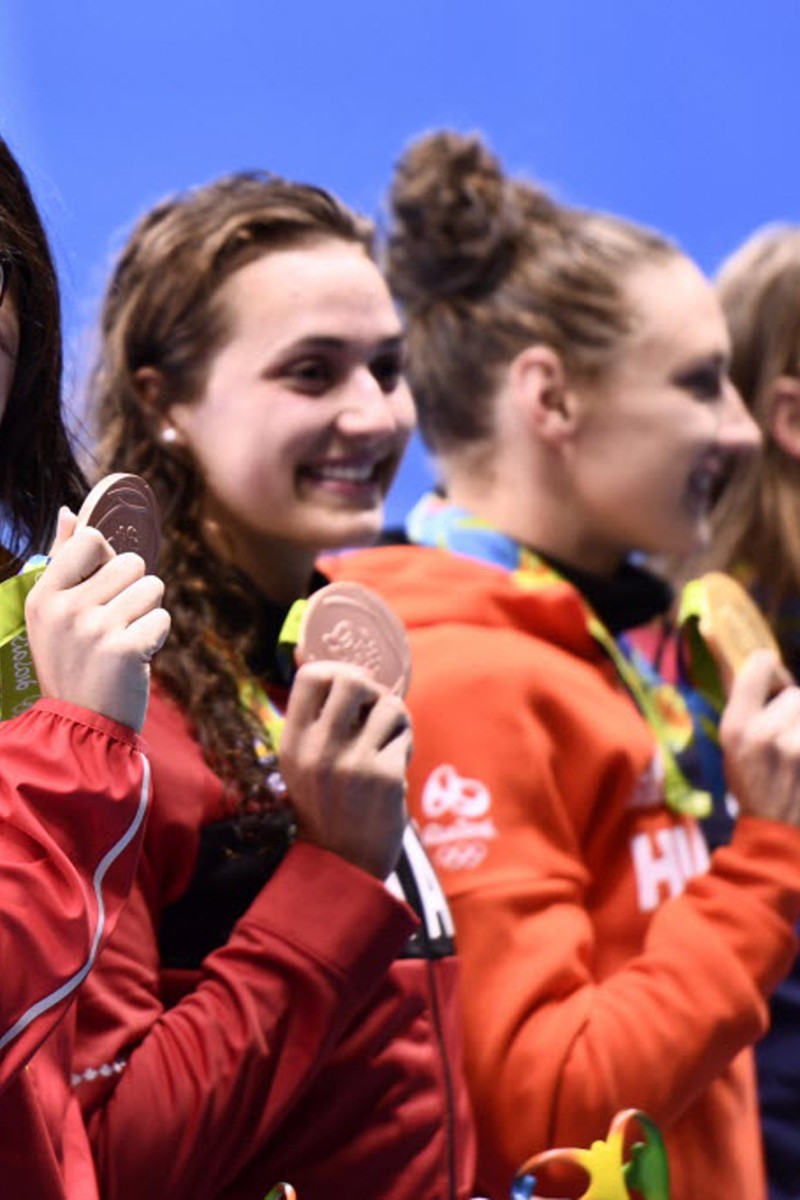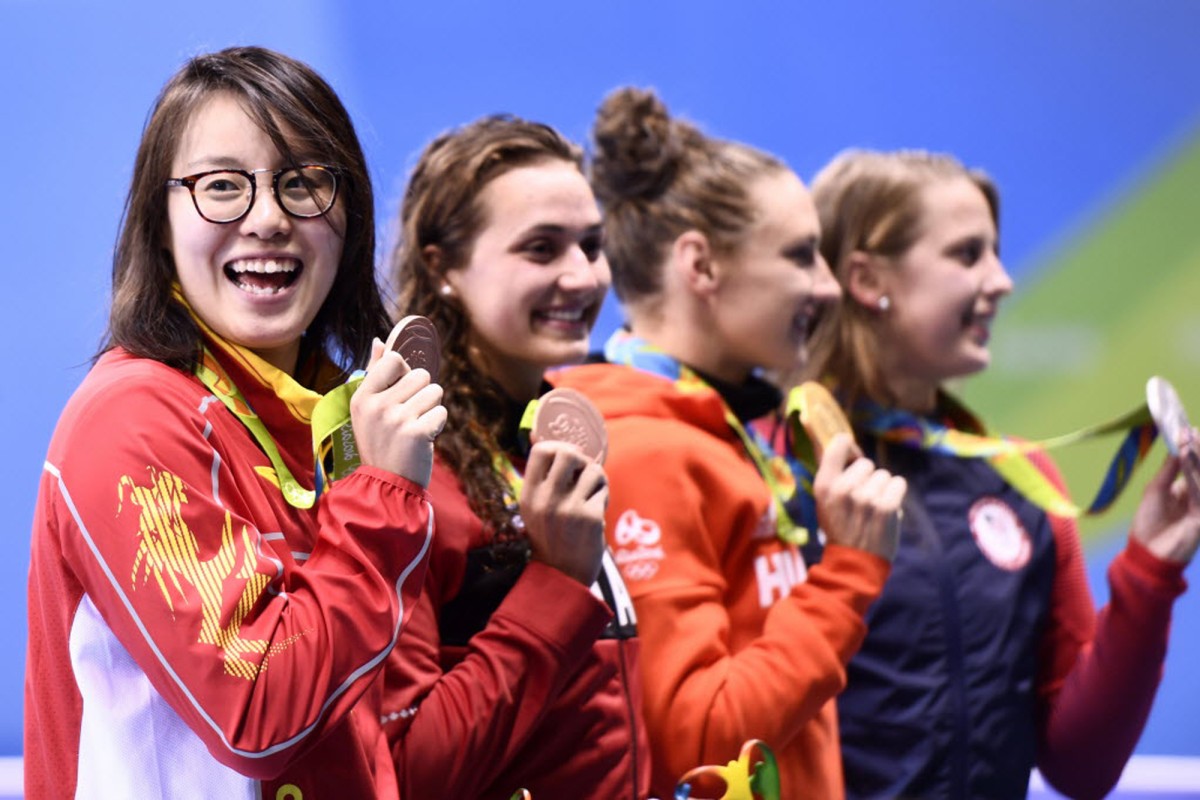
State support helps to make athletes dreams come true
 Fu Yuanhui on the podium after she won the Women's 100m Backstroke Final during the swimming event at the Rio 2016 Olympic Games.
Fu Yuanhui on the podium after she won the Women's 100m Backstroke Final during the swimming event at the Rio 2016 Olympic Games.With green pools, falling TV cameras, and an overall sense of disorder in Rio, the 2016 Olympics still managed to celebrate the diverse talents of athletes such as Michael Phelps, Usain Bolt, Sun Yang and Fu Yuanhui. Despite their dazzling display, the Olympics, as a whole, continues to be more a measure of national investment and authority.
The Russian doping scandal is one such example of state power. Undetected for years, the Russian government has been able to funnel an obscene amount of resources into helping their athletes cheat.
Even without doping, richer countries already have a major advantage in training their athletes. China, for example, has around 400,000 teens training at Olympic schools across the country. Plucked from mainstream schools at a young age, and given intensive training, they have a significantly higher chance of success than their non-specialised peers.
Compared to poorer nations, wealthy countries are also more likely to discover talent and develop those skills, thanks to a solid sports system, top-class facilities, well-qualified coaches, and government investment.
If we were to consider the Olympic Games as a whole, rather than the individual events, the competition between nations is even more evident. The opening ceremonies in Rio, Sochi, London, and Beijing are always compared to each other. People ask: Who did better?
Although I believe that the Olympics should be more focused on individual talent rather than national efforts to churn out gold medals, the end result is still a positive one. If governments didn’t support sports, then thousands of athletes may not be able to follow their respective passions. While focusing on the national rankings can overshadow individual achievements, it’s still great that governments are helping people achieve their dreams.